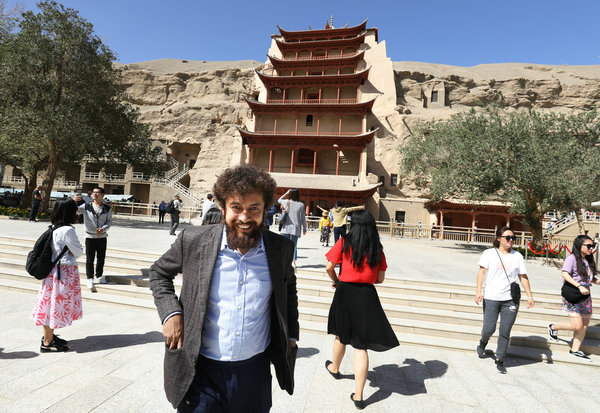 |
|
Kumar Khadka pays a visit to the Mogao Grottoes in Dunhuang, Northwest China's Gansu province. [Photo by Zhu Xingxin/China Daily] |
There, he stayed with tea-growing farmers and experienced every part of tea production, from picking and processing, to storage, all of which were interesting in Khadka's eyes.
The traditional tea drinking ritual also impressed him.
"To me, drinking tea is a way of enjoying life," he says.
Later, to better understand Chinese thinking and culture, he applied to study Chinese philosophy at Beijing Normal University in September 2016.
"I believe philosophy can give me an insight into Chinese thinking and how China became what it is today," Khadka says.
Khadka is one of the many Nepalese students who have benefited from the increasingly frequent exchanges between China and Nepal.
More than 6,400 Nepalese students have studied in China as of 2017. And Khadka alone knows 60 to 70 of his compatriots learning Mandarin in China at the moment.
"There are even more of us doing medicine and engineering in Beijing," he says.
Khadka, the vice-chairman of the Beijing-based Nepal Chinese Language Teachers Association, which aims to boost bilateral exchanges, says the association has arranged for Nepalese students to study in China and for Chinese learning institutes to host academic events in Nepal.
Separately, the association will host an Asian natural philosophy meeting in Lunbini, Nepal, in November, in conjunction with a university in Lunbini and Beijing Normal University.
"We want to help Nepalese better understand opportunities in China, and the Chinese faculty to understand Nepal's academic environment and resources," he says.